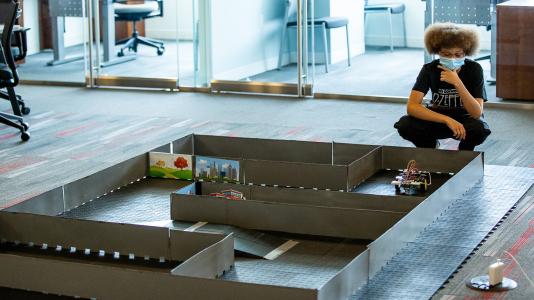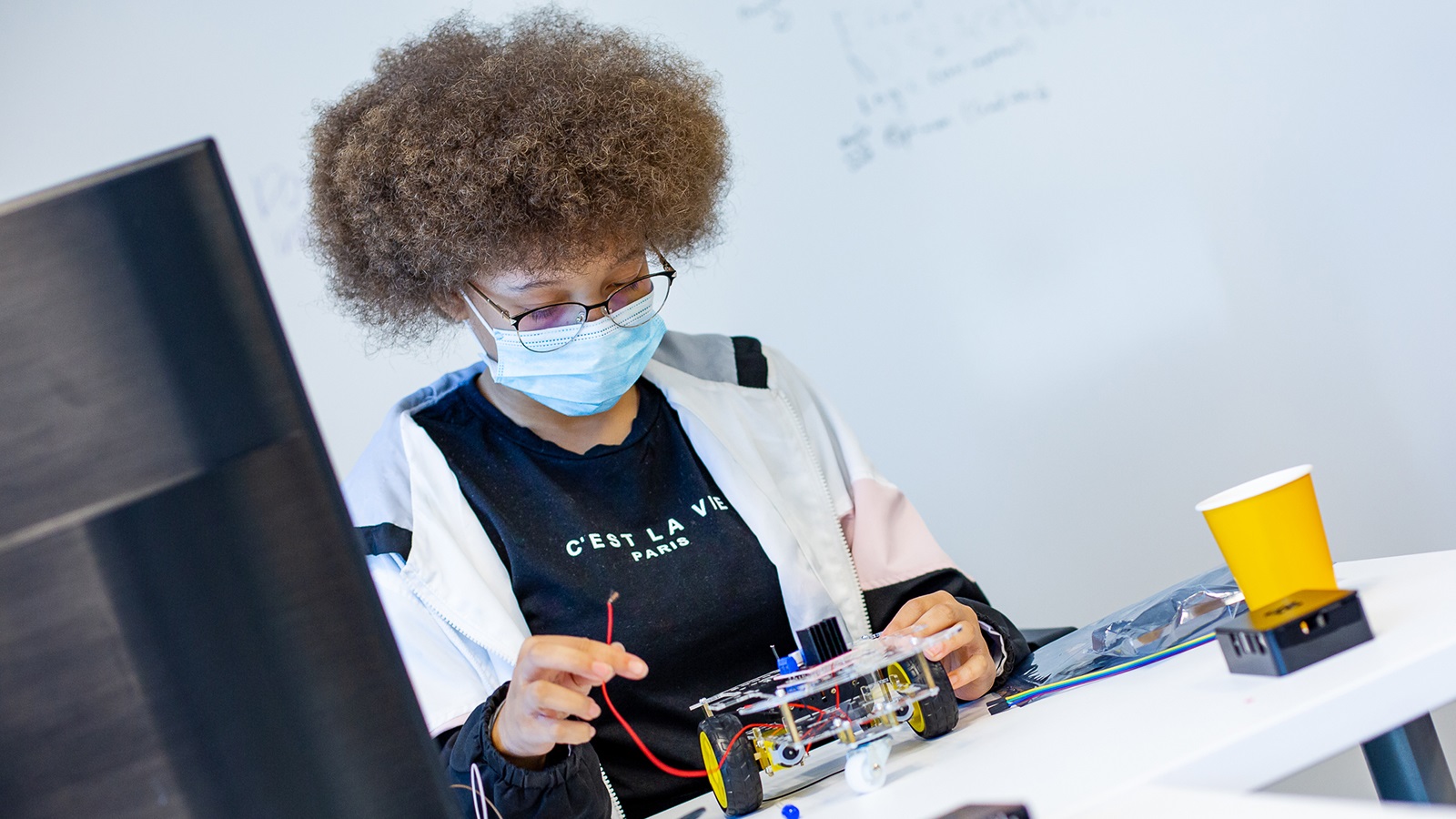
For auto engineers, creating a self-driving car represents one of the major near-term transformations in transportation. Students at summer camp at the U.S. Department of Energy’s Argonne National Laboratory have received a taste of the challenge and rewards involved as they participated in an Autonomous Vehicle Camp this summer.
These self-driving vehicles, designed by high school students in just a week, had to navigate through a foot-high maze and past obstacles to reach the finish line. Although the machines had varying levels of success at completing the challenge, the students and Argonne staff enjoyed the spectacle.
“In five days, I started from scratch, knowing nothing, and I went on to make an engineering machine that was a whole different spectrum than what I’m used to. If I grew this much in a week, how much could I do in a year?” — Jose, camper
Argonne launched the Autonomous Vehicle Camp this year at its Argonne in Chicago location on the city’s South Side with local Chicago high school students. The new camp adds to the laboratory’s rich selection of science, technology, engineering and mathematics (STEM) summer camps.
The Autonomous Vehicle Camp’s theme takes inspiration from Argonne’s annual Autonomous Vehicle Competition, which has been on hold for several years due to safety precautions. Both the competition and camp challenge high school students to design small, self-driving machines that can maneuver through specially built obstacle courses. The big difference is that the competition takes months of preparation, while campers only had one week to pull it off.
“The Autonomous Vehicle Camp — just like the competition that inspired it — is great for STEM-interested students in numerous ways. It requires them to participate in hands-on challenges to design, program, test and present machines on their own, much like professional engineers and researchers. Plus, students learn important teamwork skills in the process,” said Argonne’s STEM outreach coordinator Brandon Pope.
Although students received some guidance from staff, they designed and programmed their vehicles independently, creating a rewarding experience.
“I really enjoyed putting together each piece of the car,” said camper Ava Peek. “I’m proud that I was able to find a problem with my car, decide what I wanted to change, and fix it myself. Seeing your creation come to life is a very fulfilling experience.”
Moreover, the students’ achievements over the course of Autonomous Vehicle Camp demonstrate how far they and others can advance in STEM through camps, competitions and other educational programs. Some of the students may even choose to participate in the yearlong Autonomous Vehicle Competition that will restart in 2023, which will offer even more in-depth, hands-on engineering experiences.
“In five days, I started from scratch, knowing nothing, and I went on to make an engineering machine that was a whole different spectrum than what I’m used to,” said high school student Jose. “If I grew this much in a week, how much could I do in a year?”
Argonne National Laboratory seeks solutions to pressing national problems in science and technology. The nation’s first national laboratory, Argonne conducts leading-edge basic and applied scientific research in virtually every scientific discipline. Argonne researchers work closely with researchers from hundreds of companies, universities, and federal, state and municipal agencies to help them solve their specific problems, advance America’s scientific leadership and prepare the nation for a better future. With employees from more than 60 nations, Argonne is managed by UChicago Argonne, LLC for the U.S. Department of Energy’s Office of Science.
The U.S. Department of Energy’s Office of Science is the single largest supporter of basic research in the physical sciences in the United States and is working to address some of the most pressing challenges of our time. For more information, visit https://energy.gov/science.
